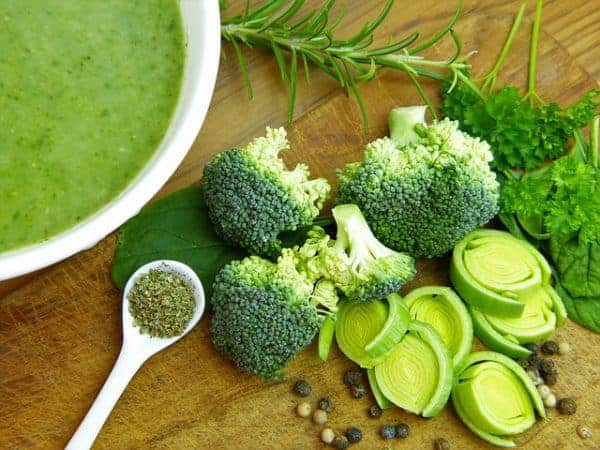Five tasty and healthy foods for you to enjoy as the weather gets colder to maintain physical health and good nutrition levels.
According to the latest Health Survey for England 70-80% of men and women aged 65 to 84 are overweight or obese yet, conversely, there are over a million people in the UK in the same age group who are at risk of malnutrition. The risk of malnutrition and problems with nutrition can be even worse in winter when activity levels and hence appetite decrease.
Malnourishment can be a real issue for older people causing all kinds of health problems: hindering wound healing, weakening the immune system and weakening bone health.
We have written a Guide to Good Nutrition for the Elderly that provides details about all the different nutrients, vitamins and minerals required in a healthy diet but here’s a quick run-down of 5 healthy foods to boost your nutrition levels and help maintain your physical health during the colder months:
- Soup For Warmth
A key issue for the elderly is keeping warm and dropping temperatures can leave older adults at risk of infections and illnesses that can be incredibly dangerous to a frail body. Eating for warmth is really important, and at least one meal a day in winter should be a hot one. Soup is a great option for both nutrition and warmth, and easy to digest. Vegetable based soups are a really great addition to your store cupboard or you could make your own and freeze it in portions, for a cheaper, healthier alternative.
- Oily Fish For Vitamin D
Oily fish contains vitamin D which is something the whole of the UK lacks during winter, but especially the elderly who may not go outside as much. Poached salmon with potatoes and green vegetables is an excellent hot meal choice for winter to boost your vitamin D levels.
- Dairy For Calcium
Bone health can be at risk in older people, especially in winter when you might not be as active. Calcium is essential for bone health and you should boost your levels by eating calcium rich foods like dairy products. If you are overweight then aim to get your calcium intake from leafy green vegetables to avoid additional fat and calories.
- Healthy Meats For B12
B12 is harder to absorb as you get older so you need to try and include more sources of it in your diet. Healthy meats like chicken and turkey contain B12 and are also a good, low-fat source of protein.
- Fruit And Vegetables For Vitamins, Minerals and More
Fruit and vegetables are jam-packed full of vitamins and minerals, not to mention fibre. Fibre is really important for the elderly as it helps to balance blood sugar levels and keeps your digestive system regular.
Eating fruit or vegetables with every meal and opting for fruit and vegetables as healthy snacks is a really good way to keep your diet varied and packed full of nutrients. Your immune system will certainly benefit, helping you stave off winter bugs and illnesses.
If you are unsure how to eat well in winter, our Guide to Good Nutrition for the Elderly is a good starting place to learn about healthy foods and includes a simple healthy shopping list to download. However, if you have specific nutritional needs or an underlying health condition you should speak to your GP who can provide you with more information and refer you to a dietician if necessary.


14 Comments. Leave new
Too true – good food makes all the difference both to health and just feeling good and having something to look forward to
Great nutrition advice to keep healthy through winter!
So important to find natural ways to keep ourselves healthy.
Some great advice. Not just for the elderly but for those who take care of them!
Great tips!
Completely agree – what great advice!
It’s even more important in winter to eat well I think!
Great advice, for carers as well to ensure the people looked after are getting the right foods.
Its quite incredible how eating well and hydration impacts well being – cant emphasize enough how important this is…
Health and Wellbeing starts with a good diet, especially during winter.
Never underestimate the benefits of a balanced diet! Great advice!
Some really good advice for everyone!
I highly recommend Porridge with berries or bananas for the winter mornings! Keeps you warm, easily digestible and plenty of nutrients. Lot’s of different recipe ideas for variety as well!
Sounds good Matt – may favourite warming winter breakfast is porridge with dried apricots, almond flakes and honey. There are plenty of other tasty and healthy variations too…